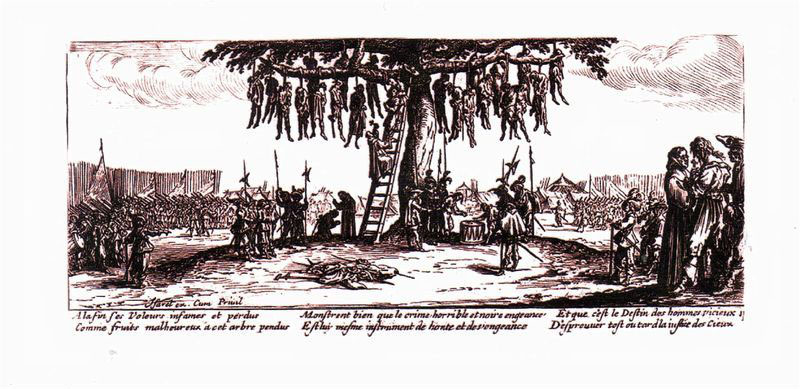
François de Montcorbier, better known as François Villon, a great medieval poet, writer, trickster and murderer, was born around 1430.
He was adopted by the Chaplain Villon, Master es-arts from a very early age, he let himself little by little be overwhelmed by his ardent and adventurous nature.
Playful, drunkard and debauched, he is also capable of delicate feelings as he will prove it in Saint-Maixent.
Villon meets love
After being sentenced to death once again, he managed to have the sentence commuted to ten years of banishment from Paris. He wandered through England and various French provinces, and one day crossed Saint-Maixent.
There, he caught the eye of a woman... Subjugated, he stopped... made his conquest and decided to settle in Saint-Maixent.
However, the lady was highly esteemed by the Prior of the abbey, a good man if ever there was one. One day, she introduces the poet to the prelate. The latter had heard not only of the poems, but also of the "facetiousness" of Master François, and the first welcome was not very warm.
But when he learned that Villon was the nephew of a worthy Parisian chaplain, and when he also knew that the poet knew the language of Poitou, he asked him to compose a Passion in the local dialect.
François Villon immediately accepted and set to work.
Very quickly, he wrote " la Passion " and the text received the approval of the City's notabilities. However, it remained to distribute the roles to the improvised actors. This is where the last bloody drama he was involved in will begin. It was indeed a question of dressing an old peasant who had been chosen to play the role of God the Father. Villon went to see Brother Etienne Tappecoue, sacristan of the Cordeliers of the place and asked him
Lend a cope and a stole. The latter refused, claiming that it was forbidden by the statutes of his Order to "lease or lend for playing them. Villon, Rabelais tells us in his Pantagruel, replied that the statute concerned jokes, isomeries and dissolute games, and that thus he had seen him practicing in Brussels and elsewhere. Tappecoue, this notwithstanding, told him peremptorily that elsewhere, if it seemed good to him, nothing could be expected of his sacristy, for nothing would. Villon promised that from Tappecou, God would soon take vengeance and exemplary punishment.
The drama...
The following Saturday was that of the "watch of the devil", the traditional procession of the devils of the Passion.
François, learning that Tappecoue had gone out on a mare from the convent, saw this as a magnificent opportunity to scare him. The devils were all covered with wolf skins, sheep's heads, ox horns and they wore large belts with cymbals attached to their waist. They held clubs carrying rockets and long burning firebrands.
Villon, seeing Tappecou coming from afar, ordered them to hide. And Rabelais recounts: "When Tappecoue arrived at the place, they all went out on the path to meet him, in great awe, throwing fire from all sides at him and his mare and sounding their cymbals and screaming like devils: Hho, hho, hho, hou, hou, hho, hho, hho. Brother Stephen, let's not be devils".
The frightened mare trotted, jumped, and galloped, while the poor monk was dragged along by the beast, which was multiplying its kicks against him. Eventually, the animal's movements eventually cut off his head, and his brains fell near the Croix Hosannière. The arms were torn apart, as were the legs, so that when the animal arrived at the convent, the monk wore only the monk's right foot and a shoe twisted with ropes.
This was the last drama of Villon's life, which was to be lost for good. But before that, the representation of the Passion written in the Poitevin language by Master François Villon, edited by him and performed under his direction by the inhabitants of the country obtained a warm success in front of all the population of Saint-Maixent.
The local life resumed on his departure the calm and tranquility that for some time had been lacking.
Translated with www.DeepL.com/Translator
(free version)







